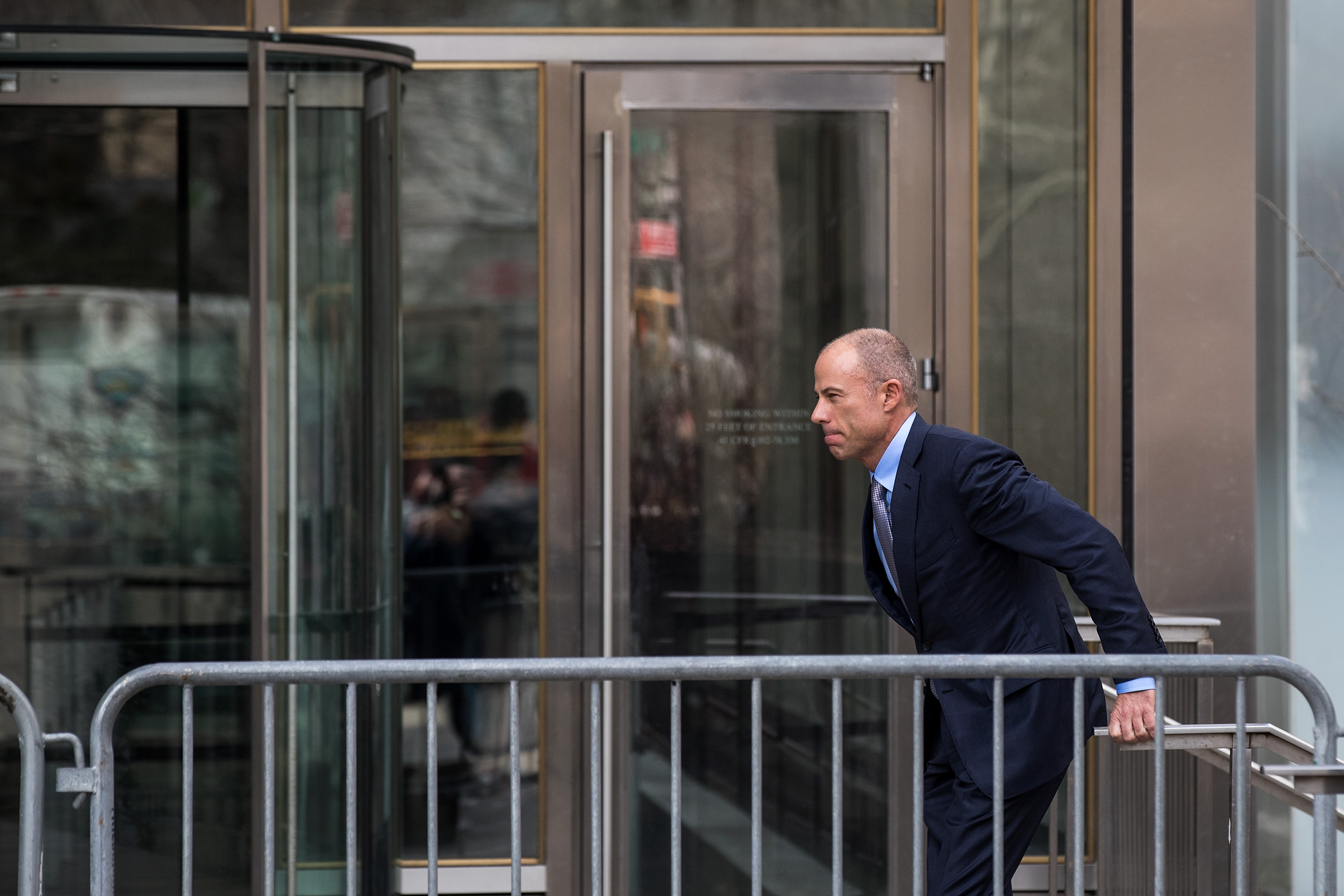
Stormy Daniels‘ spokesman attorney Michael Avenatti is doing his client a disservice yet again.
In a tweet sent at 4:55 p.m. on Friday, Avenatti wrote:
If this is true, let me be clear. I will bring the weight of the world down upon Mr. Cohen, together with any other party that violated my client’s rights or conspired against her. #thug #zerotolerance #basta
Avenatti’s tweeted comments (and hashtags) were made in reference to a Friday CNN report noting that FBI agents obtained recordings between attorneys Michael Cohen and Keith Davidson during the recent raid on Cohen’s office in Manhattan. Davidson formerly represented both Daniels and Playboy model Karen McDougal–each of whom have alleged affairs and cover-ups with and involving President Donald Trump.
Avenatti’s tweeted semi-threat is off-base for at least a couple of reasons.
First of all, in terms of recording phone calls, New York is what’s known a “one-party consent” state. That is, New York State law makes it a crime to record a telephone conversation unless one party to the conversation consents to the recording. The law on point is codified at N.Y. Penal Law §§ 250.00, 250.05.
Here, Michael Cohen is reportedly the party who made the recordings in question. Because Cohen was one of the two participants in the alleged conversation(s) with Davidson, Cohen clearly gave his own consent to be recorded–by himself. Under New York State law, that’s quite enough to foreclose against criminal liability.
California, on the other hand, is a “two-party consent” state and the Golden State’s laws provide that all parties to a conversation must give their consent before being recorded. The law on point here is codified at California Penal Code §632. The California Supreme Court previously held that recorded calls originating from one-party consent states (like New York) still run afoul of California’s prohibitions against recording without all parties’ consent.
Here, Cohen almost certainly recorded the calls while he was in New York. But if Davidson was in California at the time those conversation(s) with Cohen were recorded, Davidson could possibly have a claim against Cohen for a violation of California law. Where that leaves Avenatti thinking he–or his client–has any sort of legal recourse here is a bit of a mystery.
(It is true that California law purports to subject violations of their two-party consent statute to criminal liability as well, but it’s hard to imagine California state law enforcement responding favorably to a theoretical criminal complaint from Avenatti unless Davidson were to complain, too. Such a scenario strains belief because the alleged hush money payments made to both McDougal and Daniels are widely believed to be the result of a mutualistic lawyering agreement between Cohen and Davidson.)
A second and related point on Avenatti’s sort-of-threat here. As noted by conservative legal analyst Robert Barnes, Avenatti likely implicated Daniels as having violated California’s two-party consent rule herself–when he suggested that there existed a secret phone recording (likely made in California) between Daniels and Trump. An additional section of California’s privacy law on point here could feasibly implicate Avenatti or Davidson as well–if either attorney were found to have “assist[ed]” or “receive[d]” the rumored Trump-Daniels recording.
But let’s be pretty clear about what to actually expect: not much.
The validity of California’s extra-territorial application of its laws to calls made in other states is still a matter of dispute–therefore the only cognizable basis for anyone to go after Cohen over the recording issue is not settled law. Michael Avenatti’s standing to bring any sort of complaints is highly suspect–therefore it’s hard to see how much could ever come of this.
And, there appear to be circumstances where each of the three attorneys involved may have implicated themselves in some version of the same legal violation–therefore everyone’s potentially dirty hands here suggests we’re hearing a lot of legal-ish posturing instead of actual legal arguments being made.
As a final note, here’s what the real import of all this back-and-forth recording drama may be all about:
Daniels’ lawyer has every reason to be nervous about the discovery of tape recordings b/t Cohen & her former lawyer. Does it document an extortion plot by Daniels against Trump? FYI: it is perfectly legal to record a conversation with someone you believe is trying to extort you. https://t.co/vu5ymoklyF
— Robert Barnes (@Barnes_Law) April 14, 2018
That’s fairly speculative, too. But no matter how this particular issue is approached, Avenatti doesn’t appear to have much good news coming his way. Neither does his client. And, to quote a phrase, that’s sad.
[image via Drew Angerer/Getty Images]